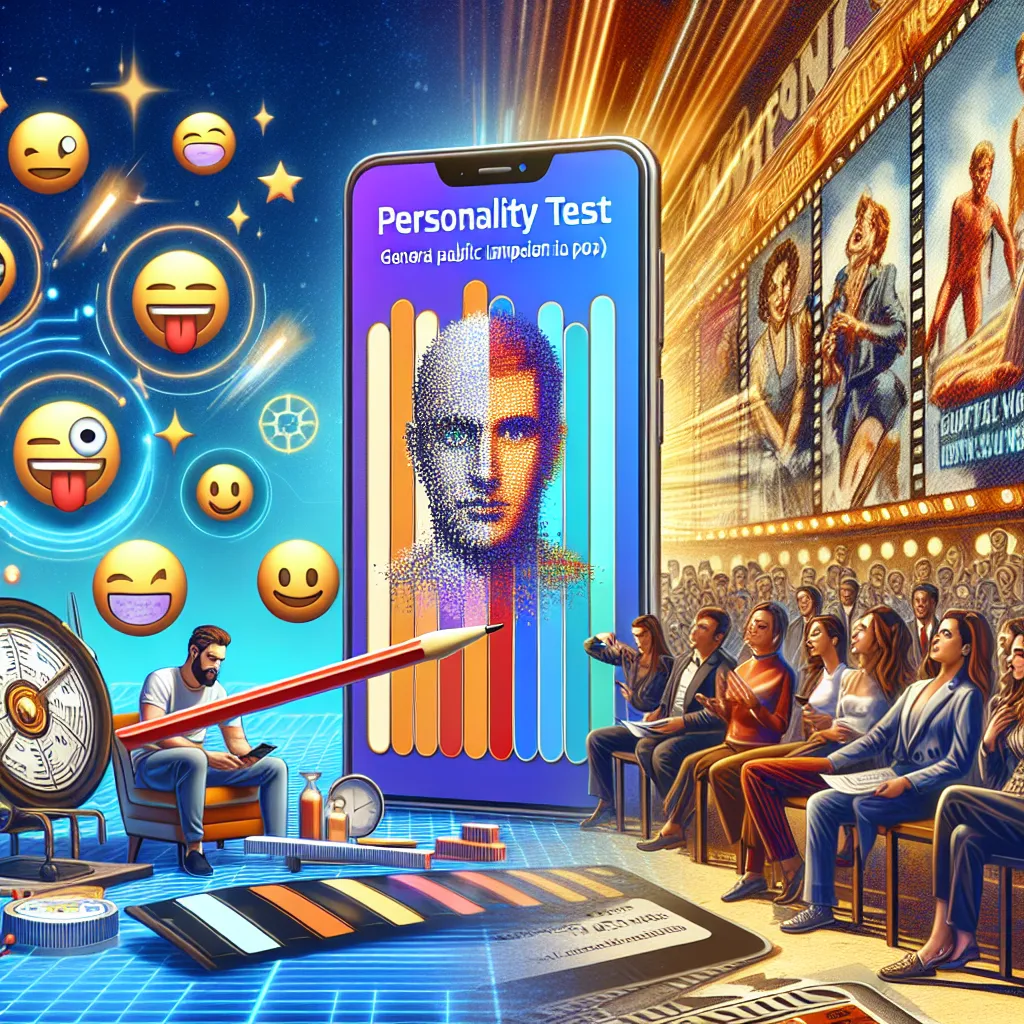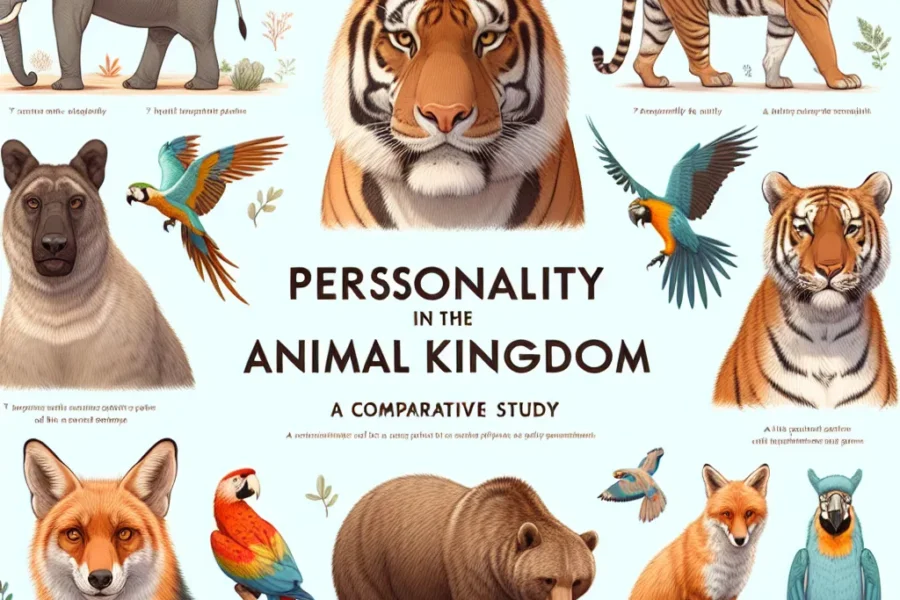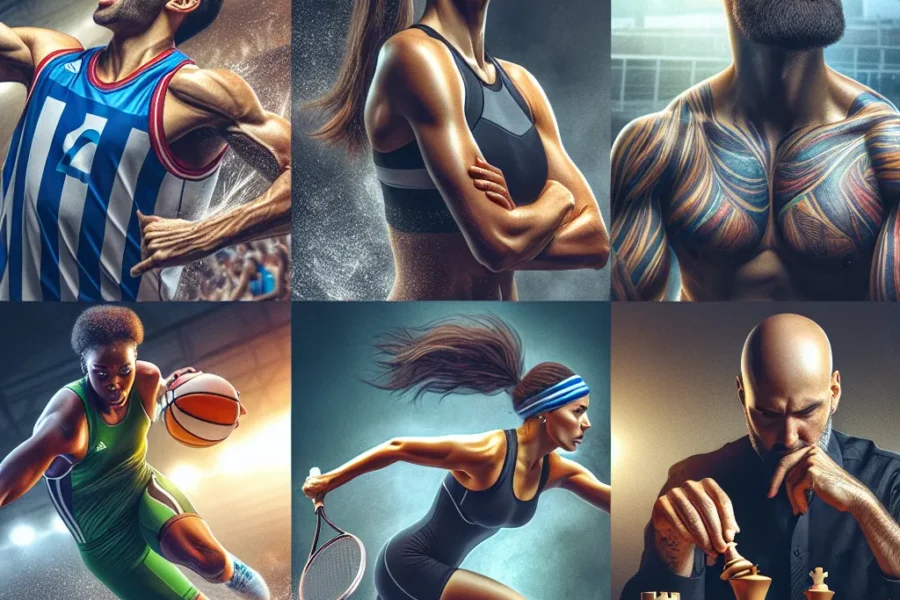Personality tests have developed a unique place in both our personal self-discovery and our cultural zeitgeist, embedding themselves into the fabric of our daily lives. From Buzzfeed quizzes that tell you which type of bread you are, to intricate assessments that align you with iconic movie characters, personality tests are a fixture in pop culture. They mingle at the intersection of psychology and entertainment, offering both a platform for introspection and a canvas for creativity. Unsurprisingly, this phenomenon has spiraled into the big screen, influencing character development and plotlines, as audiences clamor for deeper connections with on-screen personas.
The ubiquity of personality tests in popular culture can be traced back to the proliferation of online platforms that made these tests readily accessible. Buzzfeed emerged as a trailblazer, capitalizing on the intersection of personality psychology and viral content. Their quizzes often feature a humorous and light-hearted approach, inviting users to discover which meme, celebrity, or fictional universe they align with based on their preferences and behaviors. These interactive tests sparked a digital frenzy, as users shared their results across social media platforms, enticing friends to engage in the same activity and compare outcomes.
This trend of personality quizzes extends beyond the domain of casual entertainment and into more serious typology systems like the Myers-Briggs Type Indicator (MBTI), the Enneagram, and the Big Five personality traits. These systems are grounded in psychological theories and research, aiming to categorize and explain variations in human behavior and thought patterns. They provide frameworks for understanding oneself and others, often enhancing empathy and communication. The terminology from these tests has seeped into everyday conversations, with phrases like “I’m an INTJ” or “That’s such a Type 2 thing to do” becoming commonplace.
Television shows and movies have tapped into the personality test fascination by weaving these elements into their narratives. Viewers delight in trying to peg characters to an MBTI type or associating them with a Zodiac sign, deepening their engagement with the story. Scriptwriters may also use these tests as tools for character development, ensuring that the fictional people they create exhibit the consistency and complexity of real-life personalities. By aligning on-screen characters with familiar personality frameworks, creators forge a stronger bond between the audience and the characters, as viewers find it easier to relate to or understand their actions and motivations.
The influence of personality tests on pop culture also translates to marketing and merchandising strategies. With the ability to identify with particular character types, fans are more inclined to purchase products that align with their personality-derived affinities. For instance, a “Gryffindor” sweatshirt from the “Harry Potter” series appeals to those who identify with the bravery and chivalry associated with that house, itself a sort of personality test within the fiction.
Casting in film and television can also be informed by personality tests. Directors and producers sometimes use these tests to understand an actor’s strengths or to predict the chemistry between potential cast members. This scientific approach to casting aims to elevate performances by ensuring that the actors’ inherent traits complement the characters they portray, potentially leading to more authentic and compelling storytelling.
However, the confluence of personality tests and pop culture is not without its critiques. Some argue that these tests oversimplify the complexity of human psychology, reducing people to categories or labels that cannot possibly encapsulate the full spectrum of human behavior. Additionally, there is concern over the accuracy and validity of such tests, particularly those designed more for entertainment than rigorous psychological evaluation.
Despite these concerns, personality tests continue to captivate our imagination. Shows like “The Office” have directly incorporated personality tests into their episodes, both as a plot device and a nod to this cultural phenomenon. Similarly, reality TV programs like “Survivor” and “Big Brother” are rife with personality dynamics that echo the traits and archetypes found in popular personality systems. Audiences speculate on contestants’ personas, applying their armchair psychology to predict behaviors and alliances.
The rise of social media has only amplified the reach and impact of personality tests. Influencers and content creators often share their own results, encouraging followers to do the same in a cycle of continuous engagement. These platforms have also facilitated the creation of niche communities where individuals can discuss, debate, and connect over shared personality types or quiz outcomes. It’s a bonding experience that spans virtual and real-world interactions.
Looking forward, the integration of personality tests in pop culture shows no signs of waning. With advances in technology, such as augmented reality (AR) and artificial intelligence (AI), the potential for interactive and immersive personality-based experiences is vast. Imagine an AR game that tailors its narrative and challenges to your personality profile, or a streaming service that recommends shows and movies based on a sophisticated analysis of your character type.
In the workplace, personality testing has seeped into corporate culture, with employers using these assessments to optimize team dynamics and leadership approaches. Job candidates might be evaluated on their Myers-Briggs or Enneagram types to determine their fit within an existing team or assess their potential in a particular role. This trend underscores the broader cultural acceptance and application of personality tests beyond mere fun and games.
Personality tests have become a lingua franca for discussing identity and behavior, a tool that guides individuals through self-exploration and offers entertainment brands a means to connect with their audience on a more intimate level. Whether it’s a simple Buzzfeed quiz that pairs you with your ideal superhero alter ego or a complex narrative that uses psychological profiles to deepen character arcs, these assessments serve a dual purpose. They are mirrors reflecting our inner selves and windows into the souls of the characters we love, both on the screen and the page.
As pop culture continues to evolve, one can expect that personality tests will remain intertwined with our media consumption and self-expression. They offer a unique blend of introspection and communal experience, providing context for both the creator and the consumer. From Buzzfeed to the big screen, personality tests are not just a passing trend; they are a fixture in the landscape of pop culture, reflecting both our quest for self-knowledge and our fascination with the human psyche.



Leave a Comment